![Trying to fix others isn't going to fix us. If anything, it's going to create way bigger problems due to making our happiness contingent on someone living up to the picture and the plan we've painted in our mind.]() Love can seem very complicated and painful but the truth is, it’s only like that when we use our feelings to try to control the uncontrollable. We say that we love someone and next thing, we’ve rolled out a whole load of expectations about who and what we think that person ‘should’ be and do due to the fact that we love them (or that they’re supposed to love us). So, with family, we do the things that we think fulfil the role of dutiful daughter/son etc., and we expect them to play their part(s) because we, after all, have met our obligations based on the assumption and expectation that [what we’re being and doing] is required in order for them to be who we want them to be. This is a hangover from childhood where we see people and in fact life, as being a reflection of our worth, of what we think we did or didn’t do.
Love can seem very complicated and painful but the truth is, it’s only like that when we use our feelings to try to control the uncontrollable. We say that we love someone and next thing, we’ve rolled out a whole load of expectations about who and what we think that person ‘should’ be and do due to the fact that we love them (or that they’re supposed to love us). So, with family, we do the things that we think fulfil the role of dutiful daughter/son etc., and we expect them to play their part(s) because we, after all, have met our obligations based on the assumption and expectation that [what we’re being and doing] is required in order for them to be who we want them to be. This is a hangover from childhood where we see people and in fact life, as being a reflection of our worth, of what we think we did or didn’t do.
When we continue to experience frustration with loved ones not living up to our expectations, it spills over into other interpersonal relationships such as with friends or romantic partners because we often unwittingly, although sometimes consciously, try to pursue our unmet needs via these other relationships.
Life is a teacher, something I talked about in episode 87 of the podcast, and so it’s always trying to open up our awareness and perspective so that we can amend the assumptions, judgements, stories and yes, expectations that are holding us back from being in fulfilling relationships that reflect the truest version of us.
We get out of payback mode where we’re expected to be rewarded with something and instead, loving someone means truly knowing and understanding them and wanting the best for their happiness and fulfilment without expecting anything in return.
Love means doing and being because it’s who we are, not because we’re trying to create the right conditions to get what we want from others.
We can’t expect from others what we’re not prepared to do for 1) us and 2) them.
It can come as quite a surprise when we’ve spent a lifetime looking for validation in one form or another from our family, to discover that actually, we have loved them conditionally.
When I’ve fallen into the trap of expecting my mother to grant me my wish that she change into someone else altogether in exchange for my love, I’m not loving her unconditionally, and there’s a level of irony there because part of my old struggle is feeling that I was not loved unconditionally and that when I was less than perfect, this is why I was experiencing unwanted outcomes and why she wasn’t being the type of mother that, well, ‘everyone else’ has (they don’t).
When I do things out of obligation in my head and then carry on as if I’ve made a sacrifice that she or anyone else for that matter, ‘owes’ me for, it’s unfair.
My intention in those times wasn’t shady but my pattern of people pleasing seemed like it was such a noble thing–you know, me sacrificing myself for others, ahem–but my recovery from being a people pleaser has centred on taking responsibility and removing the hidden agenda, whether it’s about reward or me trying to avoid something (conflict, criticism, rejection, disappointment).
I don’t like being made to feel guilty whether it’s by me or by others, so it should come as no great surprise that others aren’t too keen on me doing that to them.
It’s acceptance.
Like when you see your alcoholic father or dysfunctional mother and instead of growing impatient, lecturing, monitoring them, meddling, side-eyeing, eye-rolling, huffing and puffing, feeling helpless due to not being able to control their problems and life, self-blaming, and silently cursing and resenting them and you for them not being different to who they are yet again, you instead hold space for what is and stop carrying on as if it’s your responsibility to fix them. It isn’t.
All we need to do is love them. That’s it. Just love them.
That’s actually what we’re afraid of because if we truly accept and love imperfect people who we’ve previously unwittingly expected to be perfect and/or to spontaneously combust into someone else, it means that it’s what we have to do with us too.
It means that we have to give up suffering.
It means that we have to give up this vocation and accept that even if it was far from pretty and in fact, traumatic in parts, that was our childhood, that was our family.
We’ve got to stop trying to fix them so we can feel as if we’re making things right with us. We can make things right with us and move forward even if our family still do all sorts of feckery. I’ve learned that I’m not disloyal or a ‘bad’ daughter/granddaughter/niece/friend or whatever for not subscribing to someone else’s version of OK– I’m just me.
As I explain in Love, Care, Trust and Respect, “Just so we’re all clear, unconditional love isn’t love without boundaries, which is codependency and self-destruction due to it reflecting our lack of self-love. When we love and like us regardless of what is happening externally, we love others authentically because we have the healthy boundaries to do so. Unconditional love is about choosing love the actions, mentality and attitude through all seasons and conditions, not loving someone no matter what they do to us.”
In this way we learn that unconditional love starts at home.
We stop accepting disrespect from ourselves and choose instead, to love us, especially on those occasions when we err and not just when it’s easy to do so because life is hunky-dory.
We accept us now instead of delaying it until we’ve ‘fixed’ certain things about us or achieved a goal. Less than perfect people live, breathe and achieve things every day, so waiting for some arbitrary moment in the future is not only redundant but it reeks of moving the goalposts.
When we’re genuinely striving to come from a place of self-acceptance (aka respect), we become conscious of where we’re doing things that represent playing a role that essentially amounts to self-rejection (doing things with the aim of trying to get others to fulfil what we feel are their obligations to us, halts self-acceptance).
We can then chill out because we’re not taking responsibility for other people’s feelings and behaviour and personalising what they do (or don’t do) so much that we reject ourselves and our truth.
We don’t reject happiness to keep doing the same thing and expecting different results.
We stop self-rejecting due to people and life being less than what we would prefer them and it to be.
We also, when we choose to start accepting us right now and through all seasons and conditions, we won’t remain around those who don’t accept us and who we can’t accept.
Choosing love, incidentally, isn’t just about loving people in the sense that we do our loved ones; choosing love also means acknowledging where we want different things to others and where yes, we don’t like who someone is or what they represent and then choosing to accept them as they are, which is in the highest good for all parties involved because we don’t pretend to be something we’re not and we come from a place of respect.
That might mean acknowledging that we don’t have a deep and abiding love for a parent like some other people do but that what we do know and feel is true and that ultimately, we want the best for them but don’t see us as being responsible for it. We might love them because they’re our family and through all seasons but won’t feel that we have to put up with anything and everything out of love.
Love flourishes where people know the boundaries.
Your thoughts?
Save
The post About Unconditional Love appeared first on Baggage Reclaim with Natalie Lue.
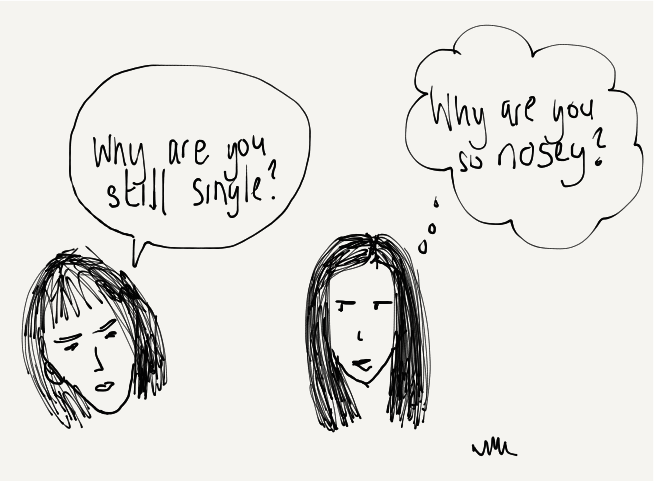
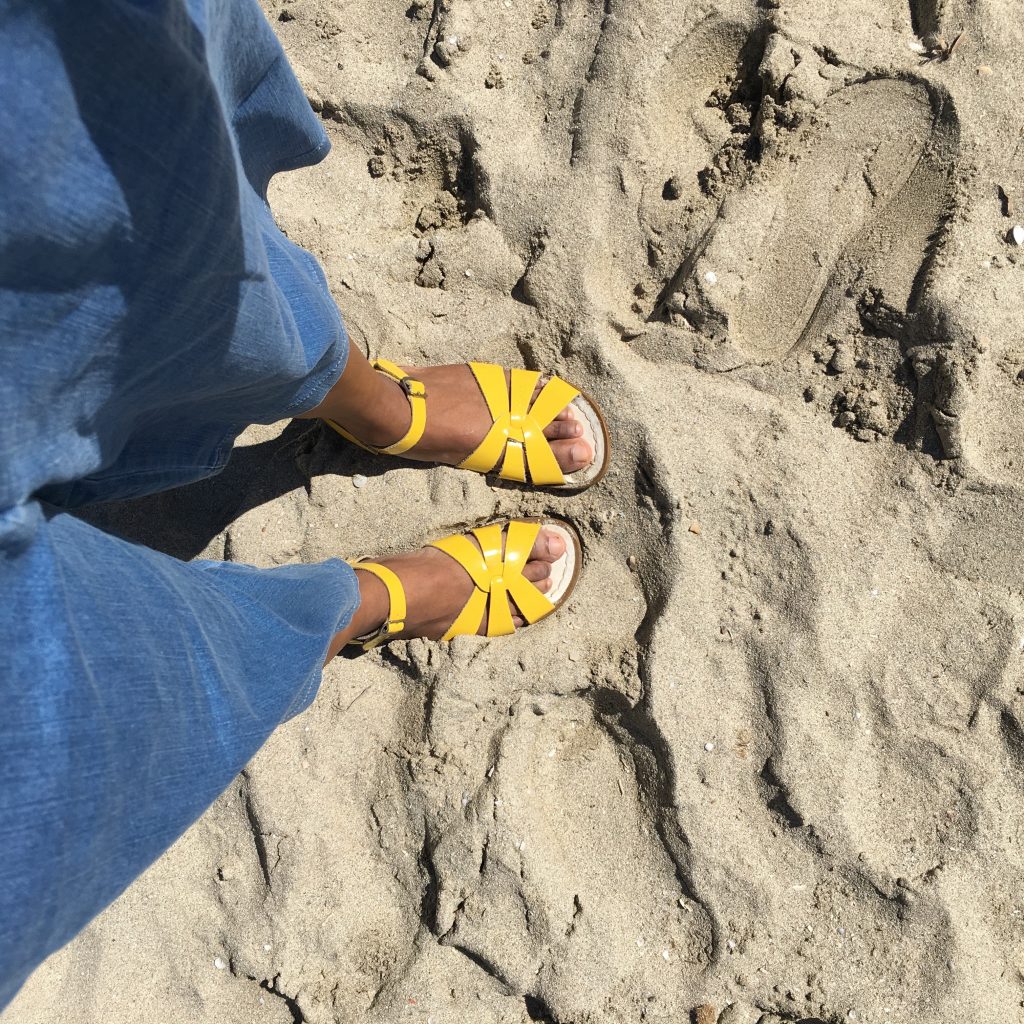
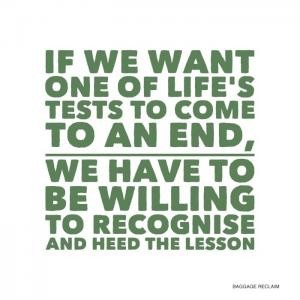 My life has changed beyond recognition and I have been guided and supported by trusted folk who have stretched and mentored me as well as a wonderful gang of people around the world who have been following my journey at different stages. I am incredibly blessed but do you know what I’ve discovered over this past couple of years in particular? A part of me, which has been revealed as my work has gathered pace and visibility over the years, has been playing it small.
My life has changed beyond recognition and I have been guided and supported by trusted folk who have stretched and mentored me as well as a wonderful gang of people around the world who have been following my journey at different stages. I am incredibly blessed but do you know what I’ve discovered over this past couple of years in particular? A part of me, which has been revealed as my work has gathered pace and visibility over the years, has been playing it small.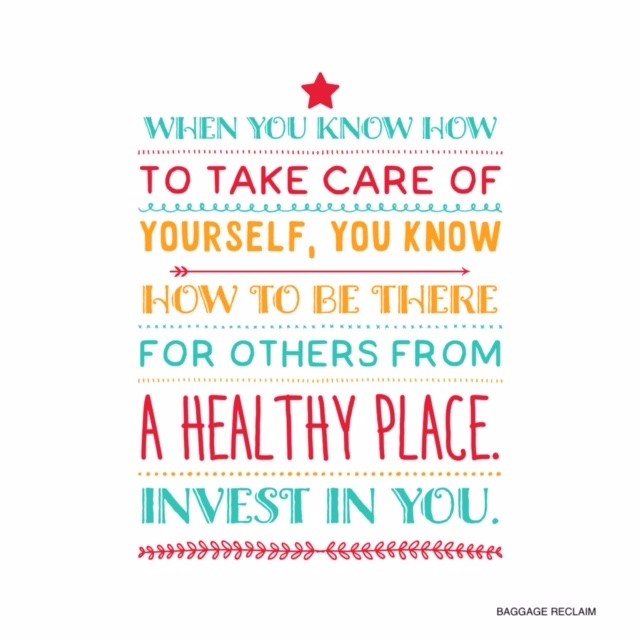
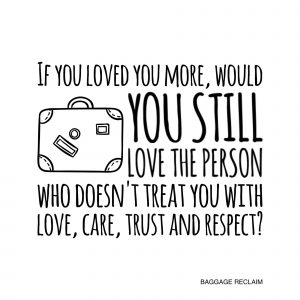
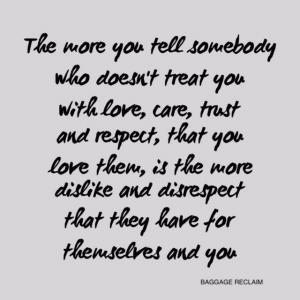
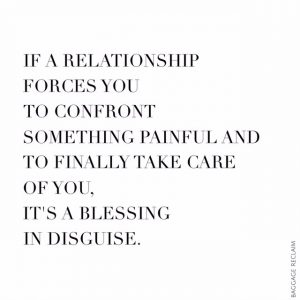 In order for you to begin to truly take care of you in and out of your interpersonal relationships and to move on from this experience which has clearly hurt you a great deal and pushed on your abandonment and rejection buttons which will be very heightened by the BPD, it’s critical that you where possible, distinguish between disorder-led behaviour and thinking versus what is being influenced by the actual circumstances that you’re in. I say this because I’ve heard from many thousands of people who were clingy and jealous with an
In order for you to begin to truly take care of you in and out of your interpersonal relationships and to move on from this experience which has clearly hurt you a great deal and pushed on your abandonment and rejection buttons which will be very heightened by the BPD, it’s critical that you where possible, distinguish between disorder-led behaviour and thinking versus what is being influenced by the actual circumstances that you’re in. I say this because I’ve heard from many thousands of people who were clingy and jealous with an 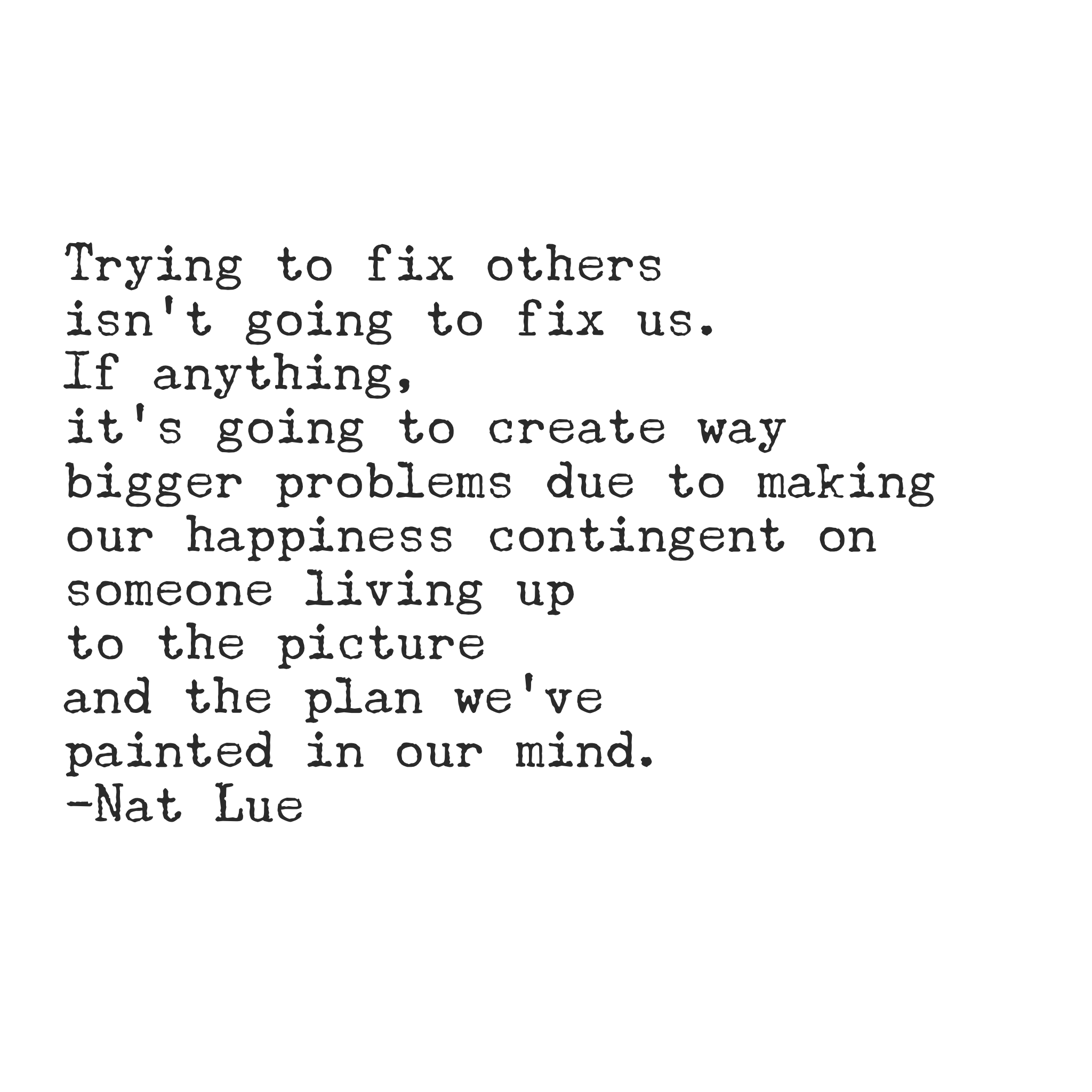 Love can seem very complicated and painful but the truth is, it’s only like that when we use our feelings to try to control the uncontrollable. We say that we love someone and next thing, we’ve rolled out a whole load of expectations about who and what we think that person ‘should’ be and do due to the fact that we love them (or that they’re supposed to love us). So, with family, we do the things that we think fulfil the role of dutiful daughter/son etc., and we expect them to play their part(s) because we, after all, have met our obligations based on the assumption and expectation that [what we’re being and doing] is required in order for them to be who we want them to be. This is a hangover from childhood where we see people and in fact life, as being a reflection of our worth, of what we think we did or didn’t do.
Love can seem very complicated and painful but the truth is, it’s only like that when we use our feelings to try to control the uncontrollable. We say that we love someone and next thing, we’ve rolled out a whole load of expectations about who and what we think that person ‘should’ be and do due to the fact that we love them (or that they’re supposed to love us). So, with family, we do the things that we think fulfil the role of dutiful daughter/son etc., and we expect them to play their part(s) because we, after all, have met our obligations based on the assumption and expectation that [what we’re being and doing] is required in order for them to be who we want them to be. This is a hangover from childhood where we see people and in fact life, as being a reflection of our worth, of what we think we did or didn’t do.







 In order for you to begin to truly take care of you in and out of your interpersonal relationships and to move on from this experience which has clearly hurt you a great deal and pushed on your abandonment and rejection buttons which will be very heightened by the BPD, it’s critical that you where possible, distinguish between disorder-led behaviour and thinking versus what is being influenced by the actual circumstances that you’re in. I say this because I’ve heard from many thousands of people who were clingy and jealous with an
In order for you to begin to truly take care of you in and out of your interpersonal relationships and to move on from this experience which has clearly hurt you a great deal and pushed on your abandonment and rejection buttons which will be very heightened by the BPD, it’s critical that you where possible, distinguish between disorder-led behaviour and thinking versus what is being influenced by the actual circumstances that you’re in. I say this because I’ve heard from many thousands of people who were clingy and jealous with an 